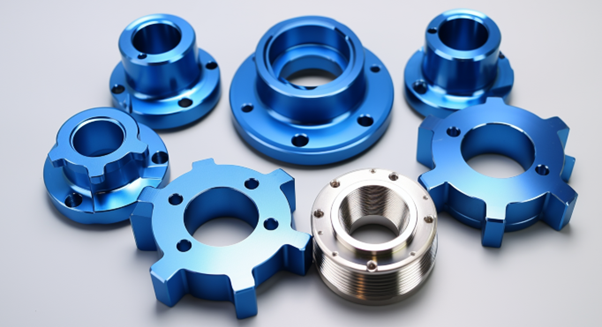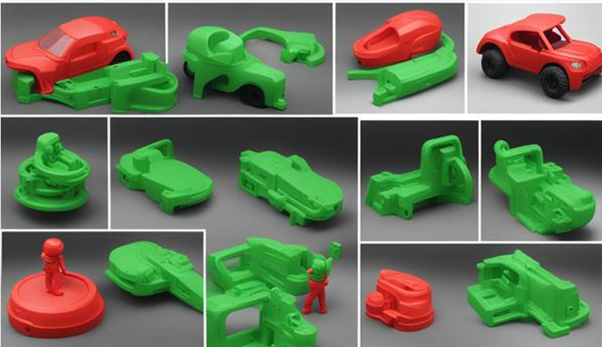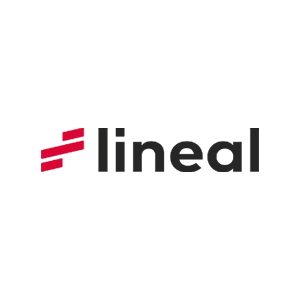Exploring the World of Plastic Molds
Legal Newswire
Jan 03, 2024
In the realm of manufacturing, plastic molds play a pivotal role, serving as the backbone for creating a myriad of products we encounter daily. From intricate components to everyday items, the versatility and precision of plastic molds shape industries worldwide. This article aims to shed light on the intricacies of plastic molds, their applications, and the expertise offered by professionals at Plastic Mold.
Understanding Plastic Molds:
Building Blocks of Manufacturing
Plastic molds are meticulous tools designed to shape molten plastic into specific forms. These molds come in various types, each tailored to meet the unique requirements of different industries. From injection molding to blow molding, the choice of mold depends on factors such as product complexity, material type, and production volume.
The Versatility of Plastic Molds: Applications Across Industries
- Automotive Industry: Plastic molds play a crucial role in crafting intricate components for vehicles, contributing to both aesthetics and functionality.
- Consumer Goods: Everyday items like bottles, containers, and packaging owe their uniform shapes to precision plastic molds.
- Medical Devices: The healthcare industry relies on plastic molds for the production of medical devices, ensuring accuracy and consistency.
Why Choose Plastic Mold:
Plastic molds have become a mainstay in modern manufacturing, offering a plethora of advantages over traditional methods like metalworking. Their versatility, cost-effectiveness, and efficiency make them a compelling choice for a wide range of applications. Here’s a closer look at why you might choose plastic molds for your next project:
1. Design Freedom and Intricacy:
Unlike the limitations of metalworking, plastic molds can be shaped into complex geometries with incredible precision. This opens doors to innovative product designs with intricate features and functionalities, as seen in:
- Medical devices with delicate and precise components
- Automotive parts with aerodynamic curves and internal channels
- Consumer electronics with sleek, ergonomic shapes and intricate housings
2. Lightweight and Durable:
Plastic molds are significantly lighter than their metal counterparts, leading to several benefits:
- Reduced transportation costs and energy consumption during production and shipping.
- Easier handling and manipulation for improved worker safety and ergonomics.
- Molds less prone to warping or deformation due to their inherent flexibility.
3. Cost-Effective and Efficient:
Producing plastic molds is generally cheaper and faster than metal molds. This makes them:
- More accessible to small and medium-sized businesses with limited budgets.
- Faster to create and iterate on prototypes, accelerating the product development process.
- Shorter cycle times for mass production, leading to increased output and lower per-unit costs.
4. Dimensional Accuracy and Surface Finish:
Modern plastic molds boast exceptional precision, producing parts with:
- Tight tolerances and minimal variation in dimensions.
- Smooth and consistent surface finishes, often eliminating the need for additional polishing or finishing steps.
- Reduced material waste due to fewer defects and rejects.
5. Sustainable Future:
The plastic mold industry is increasingly embracing sustainable practices to minimize its environmental impact:
- Biodegradable and recycled plastics are being used to create molds with a lower carbon footprint.
- Molds designed for disassembly and recycling facilitate resource recovery and reduce landfill waste.
- Responsible manufacturing processes minimize energy consumption and utilize renewable sources.
By choosing plastic molds and supporting sustainable practices, you can contribute to a greener future for the manufacturing industry.

The Process: From Concept to Plastic Mold
- Design Phase: Engineers and designers collaborate to create a detailed blueprint, considering product specifications and manufacturing constraints.
- Mold Fabrication: Skilled craftsmen at Plastic Mold bring the design to life, using materials like steel or aluminum to craft molds with precision and durability.
- Quality Control: Rigorous testing ensures that the plastic mold meets the required specifications, guaranteeing flawless production runs.
Applications of plastic mold,
The versatility and efficiency of plastic molds make them an invaluable tool for appliance and some hair straightener manufacturers. They enable the creation of stylish, functional, and user-friendly designs while ensuring affordability and mass production feasibility. As advancements in sustainable plastics and responsible manufacturing practices continue, we can expect even more eco-friendly appliances shaped by the power of plastic molds in the future. Below some of case that need plastic molds:
Hair Straightener Housing Case:
- Intricate Design: Plastic molds excel at crafting the sleek and ergonomic shapes of hair straightener housings. They can accurately create curves, contours, and button placements, ensuring comfortable handling and user experience.
- Lightweight and Heat Resistant: Specific plastic types used in molds withstand the heat generated by hair straighteners without compromising their form or releasing harmful fumes. This lightweight property also adds to user comfort during styling.
- Color and Finish Options: Plastic molds enable a wide range of color and finish possibilities for hair straightener housings. From matte textures to glossy finishes, manufacturers can cater to diverse preferences and brand aesthetics.
High-Speed Hair Dryer Housing Case:
- Complex Internal Channels: Plastic molds allow for the creation of intricate internal channels within the high speed hair dryer housing. These channels effectively direct airflow for powerful drying performance while maintaining a compact and aesthetically pleasing design.
- Durability and Noise Reduction: High-quality plastic used in molds offers durability against drops and bumps, common during everyday use. Additionally, some plastics possess sound dampening properties, contributing to quieter hair drying experiences.
- Ergonomic Grip and Maneuverability: Plastic molds enable the shaping of comfortable and textured grips for hair dryers. This enhances user control and maneuverability, especially during extended styling sessions.
Beyond hair styling tools, plastic molds find applications in numerous other appliance parts, including:
- Coffee maker housings and carafes
- Blender bases and lids
- Toaster bodies and crumb trays
- Vacuum cleaner casings and attachments
- Refrigerator crisper bins and shelves
Benefits of Plastic Molds: Shaping a Sustainable Future
Plastic molds have revolutionized manufacturing across various industries, offering numerous advantages over traditional methods. However, concerns surrounding plastic pollution have cast a shadow on their sustainability. Despite this, advancements in plastic technologies and responsible practices can ensure plastic molds contribute to a more sustainable future.
- Biodegradable and Recycled Plastics: Utilizing bioplastics derived from renewable resources like corn starch or cellulose can significantly reduce the environmental impact of plastic molds. Furthermore, incorporating recycled plastic content into mold production creates a closed-loop system, minimizing virgin plastic use.
- Design for Disassembly and Recycling: Molds can be designed to facilitate disassembly and easy separation of plastic components for efficient recycling. This promotes resource recovery and reduces landfill waste.
- Responsible Manufacturing and End-of-Life Management: Implementing sustainable manufacturing practices, such as minimizing energy consumption and utilizing renewable sources, lowers the environmental footprint of plastic mold production. Additionally, establishing proper end-of-life management systems ensures responsible disposal or recycling of molds at the end of their service life.
By embracing these approaches, the plastic mold industry can transform itself into a driving force for sustainability. The versatility, efficiency, and continuous advancements in plastic mold technology, coupled with responsible practices, can pave the way for a more sustainable future.
Remember, while plastic molds offer numerous benefits, it’s crucial to prioritize their sustainable development and use to minimize their environmental impact and ensure a greener future for generations to come.
Sincere Tech is plastic mold and China die casting company, our unwavering commitment to staying at the forefront of the plastic mold and die casting industry drives us to embrace advancements and anticipate future trends. We continuously explore innovative materials and composites that offer enhanced performance and promote sustainability. By investing in ongoing research and development, we consistently deliver cutting-edge solutions that meet the evolving needs of our valued customers. As a trusted injection mold and die casting China supplier, we take pride in our unwavering dedication to excellence.

Conclusion:
In the ever-evolving landscape of manufacturing, plastic Molds stand as silent architects, shaping the products that define our modern lives. Plastic Mold emerges not just as a service provider but as a partner in precision, offering expertise and innovation that propels industries forward. As we navigate a future shaped by technology and sustainability, the role of plastic injection Molding in crafting a better world remains paramount.




